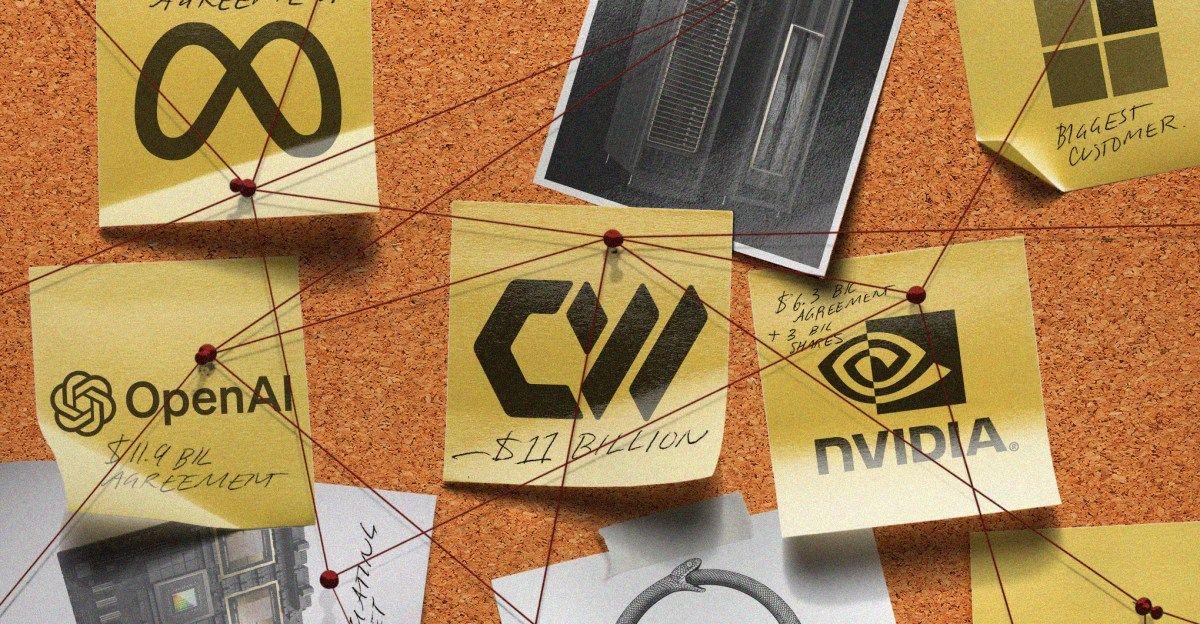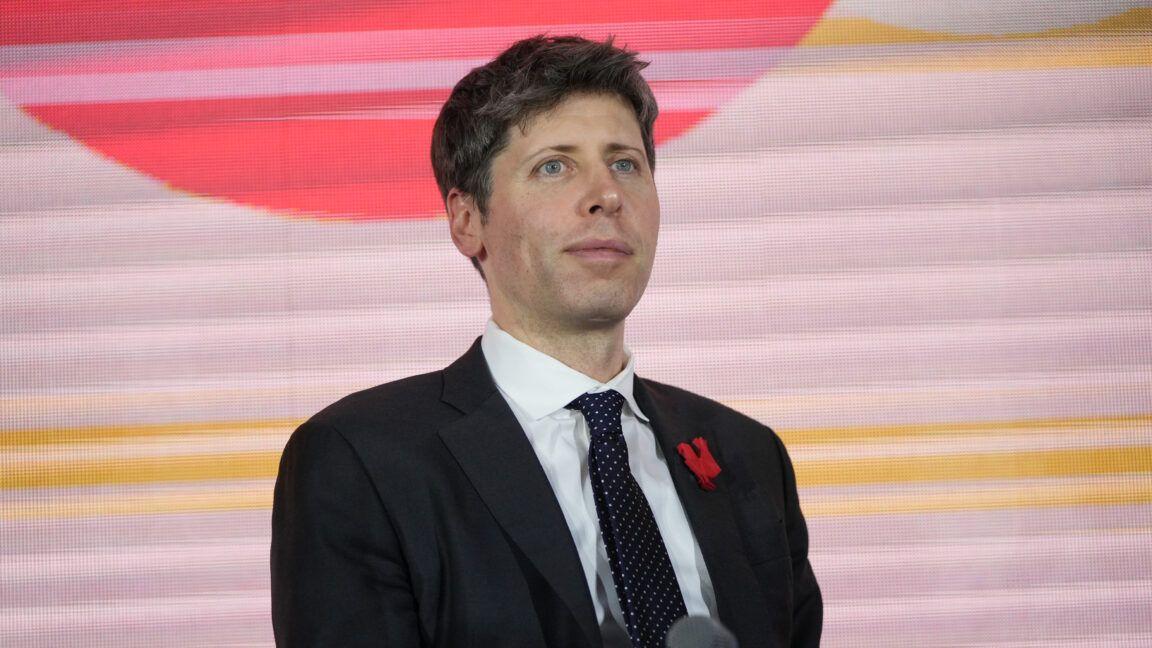Norway's $2 Trillion Sovereign Wealth Fund CEO Warns of AI-Driven Market Concentration Risks
2 Sources
2 Sources
[1]
Head of World's Largest Sovereign Wealth Fund Sees a Problem With the A.I. Hype
The concentration of large A.I. companies "is absolutely worrying." Nicolai Tangen is no stranger to mass amounts of wealth -- he oversees around $2 trillion in assets as CEO of Norges Bank Investment Management, which manages the world's largest sovereign wealth fund. But even Tangen is unsure about the sheer scale of the ongoing A.I. stock rally. "It means that there is a risk in the stock market which we have never seen before," he said during an episode of the Financial Times' Unhedged podcast last week. Sign Up For Our Daily Newsletter Sign Up Thank you for signing up! By clicking submit, you agree to our <a href="http://observermedia.com/terms">terms of service</a> and acknowledge we may use your information to send you emails, product samples, and promotions on this website and other properties. You can opt out anytime. See all of our newsletters Norway's wealth fund, initially established to invest the nation's oil revenue, owns nearly 1.5 percent of all shares in the world's publicly traded companies and is allowed to spend up to 3 percent of its holdings annually. Many of these investments are in the tech sector, with the fund holding around a 1 percent stake in Alphabet (GOOGL), Meta (META), Microsoft (MSFT), Amazon (AMZN) and Apple (AAPL). The fund's investments in these companies, combined with its stakes in Nvidia (NVDA) and Tesla (TSLA), total at around $174 billion. While Tangen's fund might be a major investor in companies at the forefront of A.I., that doesn't mean he isn't concerned about them. Warning that "we are heading for a period of low returns," the former hedge fund manager who founded the London-based AKO Capital pointed to the dominance of A.I.-focused companies in the market as cause for concern. "The leadership in the market is very narrow, always focusing on companies with some kind of A.I. connection," he told Unhedged, noting that the ten largest companies in the U.S. now account for roughly 20 percent of the U.S. S&P 500 Index in terms of market value. An A.I. revolution ushered in by the 2022 unveiling of OpenAI's ChatGPT chatbot has been an unprecedented boon for Big Tech. Demand for the new technology propelled the likes of Nvidia and Microsoft above $3 trillion market caps and pushed other tech companies to the top of the stock market, leading some to fret that an A.I. crash could have devastating financial impacts. This concentration "is absolutely worrying," said Tangen, who noted the interconnectedness between the A.I. leaders at the top as another alarming development. The Dutch company ASML makes machines to produce computer chips, used by the likes of Nvidia, which subsequently sells its A.I. accelerators to the likes of Amazon, Meta and Microsoft, he said. "There are very few companies tied into them, and they are getting bigger and bigger and more and more important," he said. The majority of these companies notably stem from America. Europe's lack of major tech companies, meanwhile, is a factor Tangen doesn't believe will change anytime soon. "In America, you have lots of A.I. and little regulation, and in Europe you have little A.I. and lots of regulation." The European Union's A.I. Act, for example, has emerged as one of the broadest efforts to regulate the technology. Going forward, Tangen is particularly concerned about the vulnerability of A.I. when it comes to geopolitical risks. "The main thing to watch is the relationship between the U.S. and China," said the wealth manager, noting the potential implications a disturbance in this relationship could have on America's reliance on Taiwan and its chip supply chains. Such chips play an outsized role in everyday life, from "phones, toasters, cars, dishwashers. Just everything," he said.
[2]
$2trn Norway oil fund CEO: AI boom creates concentration risk 'we have never seen before'
The boss of Norway's $2 trillion sovereign oil fund has fired a warning to investors who have won big on the AI stock market boom, as he cautioned that "we are heading for a period of low returns." Nicolai Tangen, the CEO of Norges Bank Investment Management, said there was a new reality in the stock market amid geopolitical tensions and falling liquidity. "The time of very low interest rates is gone. The world is a much more dangerous place," Tangen told the Financial Times' Unhedged podcast. The companies that have solidified their place at the top of that new reality is becoming a risk in itself. Businesses that create or design AI semiconductor chips and those that use the tech for their burgeoning AI capabilities saw massive share price appreciation in the last couple of years. Tangen said leadership in the stock market was very narrow, pointing out that the top of the market was now comprised of "companies with some kind of AI connection," while the top 10 companies in the U.S. S&P 500 accounted for around 20% of the index. "The concentration is absolutely worrying. It means that there is a risk in the stock market which we have never seen before." Tangen described how the biggest players in the stock market were now heavily interlinked around the business of microchips. He cited Dutch giant ASML, "which makes the machines to make the chips," before selling them to Taiwan. Many chips are then designed by NVIDIA, before being sold to the likes of Amazon, Meta, and Microsoft. "So there are very few companies tied into them and they are getting bigger and bigger and more and more important." Despite his warnings about concentration risk in the stock market, Tangen's $2 trillion oil fund is heavily invested in the companies he cited as key risk areas. Norges holds more than a 1% stake in the U.S.'s biggest tech groups, including Microsoft, Apple, NVIDIA, and Alphabet. It also holds a sizeable stake in Taiwan Semiconductor Manufacturing Company. Collectively, Norges owns $196 billion worth of shares in Microsoft, Apple, NVIDIA, Alphabet,, Amazon, Meta, TSMC, and ASML. Tangen said heavy AI regulation in Europe meant it was likely that the big tech players would continue to come from the U.S. "We have hardly any large tech companies in Europe, we are far behind. Will we manage to catch up? I would be surprised if we did. "In America, you have lots of AI and little regulation, and in Europe, you have little AI and lots of regulation."
Share
Share
Copy Link
Nicolai Tangen, CEO of Norway's sovereign wealth fund, expresses concerns about the unprecedented concentration of AI-related companies in the stock market, warning of potential risks and a period of low returns.

Norway's Sovereign Wealth Fund CEO Sounds Alarm on AI Market Concentration
Nicolai Tangen, CEO of Norges Bank Investment Management, which oversees the world's largest sovereign wealth fund valued at approximately $2 trillion, has raised significant concerns about the unprecedented concentration of AI-related companies in the stock market. In a recent interview on the Financial Times' Unhedged podcast, Tangen warned that this concentration "is absolutely worrying" and creates "a risk in the stock market which we have never seen before"
1
2
.AI Boom and Market Dynamics
The AI revolution, sparked by innovations like OpenAI's ChatGPT, has led to a substantial boom for Big Tech companies. This surge has propelled firms such as Nvidia and Microsoft to market capitalizations exceeding $3 trillion, reshaping the top echelons of the stock market
1
. Tangen pointed out that the ten largest companies in the U.S. now account for roughly 20% of the S&P 500 Index's market value, with most having strong AI connections2
.Interconnectedness of AI Leaders
Tangen highlighted the alarming interconnectedness among the leading AI companies. He described a chain of dependencies starting from ASML, which produces machines for chip manufacturing, to companies like Nvidia that design AI accelerators, and finally to tech giants like Amazon, Meta, and Microsoft that utilize these technologies
1
2
. This intricate web of relationships amplifies the potential risks associated with market concentration.Geopolitical Risks and Supply Chain Vulnerabilities
The Norway fund CEO expressed particular concern about the vulnerability of AI technologies to geopolitical risks. He emphasized the critical importance of U.S.-China relations and their potential impact on Taiwan's chip supply chains. Tangen noted the ubiquity of these chips in everyday life, from phones and toasters to cars and dishwashers, underscoring the far-reaching implications of any disruptions
1
.Europe's AI Landscape and Regulatory Environment
Tangen observed a stark contrast between the AI landscapes in America and Europe. He stated, "In America, you have lots of AI and little regulation, and in Europe, you have little AI and lots of regulation"
1
2
. This disparity, exemplified by initiatives like the European Union's AI Act, leads Tangen to believe that Europe is unlikely to catch up with America in terms of major tech companies in the foreseeable future2
.Related Stories
Norway's Fund Investments and Market Outlook
Despite these warnings, Norway's sovereign wealth fund maintains significant investments in the very companies Tangen identifies as potential risk areas. The fund holds stakes of around 1% in major tech companies like Alphabet, Meta, Microsoft, Amazon, and Apple, with total investments in AI-related companies amounting to approximately $174-196 billion
1
2
.Future Market Predictions
Looking ahead, Tangen predicts "a period of low returns" in the stock market. He attributes this outlook to various factors, including the end of the very low interest rate era and an increasingly dangerous global landscape. These conditions, combined with the narrow leadership in the market focused on AI-connected companies, contribute to Tangen's cautious stance on future market performance
1
2
.References
Summarized by
Navi
Related Stories
Recent Highlights
1
Google Gemini 3.1 Pro doubles reasoning score, beats rivals in key AI benchmarks
Technology

2
ByteDance's Seedance 2.0 AI video generator triggers copyright infringement battle with Hollywood
Policy and Regulation

3
ChatGPT cracks decades-old gluon amplitude puzzle, marking AI's first major theoretical physics win
Science and Research








